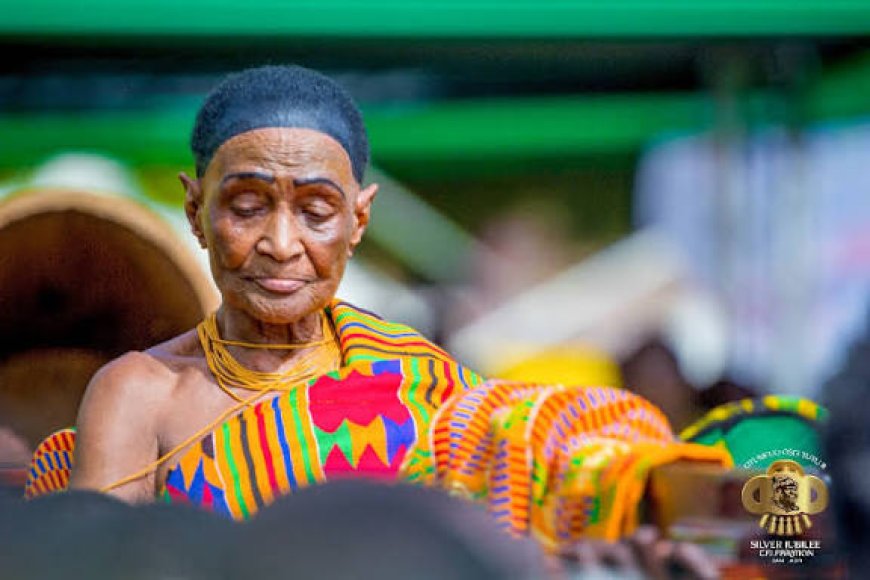Ghana Bids Farewell to Asantehemaa Nana Ama Konadu Yiadom III
JHNews || The final journey of Asantehemaa Nana Ama Konadu Yiadom III blended deep cultural symbolism with heartfelt tributes, drawing thousands to Kumasi in a historic farewell. Her nearly century-long life of service as a mother, advisor, and custodian of Ashanti traditions leaves a lasting legacy of unity, wisdom, and dignity for Ghana and the wider Akan world.

The Ashanti Kingdom witnessed an extraordinary outpouring of grief and reverence as thousands gathered in Kumasi to honor the life and legacy of Asantehemaa Nana Ama Konadu Yiadom III, who passed away on 7 August 2025 at the remarkable age of 98.
Royal Procession and Traditional Rites
Her final journey began at dawn from the Manhyia Palace, the spiritual heart of Asanteman. Streets were lined with mourners dressed in solemn black and red cloth, many holding symbolic staffs and traditional umbrellas. Drummers and horn blowers filled the air with dirges, while warriors performed the kete and fontomfrom rhythms that accompany royal funerals. Chiefs in full regalia gold-studded kente, ceremonial beads, and ostrich-feather crowns processed behind the catafalque carrying the Queen Mother’s body.
The funeral rites unfolded over several days, featuring the lying-in-state where dignitaries, queen mothers, traditional leaders, and ordinary citizens paid their respects. Ghanaians from all regions, members of the diaspora, and foreign dignitaries joined the Asantehene, Otumfuo Osei Tutu II, to celebrate her life and legacy.
A Life of Service and Tradition
Enstooled in 2017 as the 14th Asantehemaa, Nana Ama Konadu Yiadom III was the cherished mother of the current Asantehene. She succeeded her own mother, the late Nana Afia Kobi Serwaa Ampem II, making her reign both a continuation and a bridge between generations. Known for her quiet but firm counsel, she played a pivotal role in settling disputes, guiding the royal family, and supporting women and children across the Ashanti Region.
Beyond her royal duties, the Asantehemaa was admired for championing education and health initiatives. Community members recall her open-door policy, where ordinary citizens sought advice or comfort.
National and International Mourning
Political leaders, religious figures, and international envoys joined the ceremonies. Messages of condolence arrived from across Africa and the diaspora, underlining the Queen Mother’s stature as a cultural icon and a symbol of Ghanaian tradition and resilience.
Legacy of Strength and Grace
Her passing marks the end of an era. Many described her as the “Mother of the Asante Nation,” a guiding matriarch whose influence extended far beyond Kumasi. Cultural historians say her reign reinforced the relevance of traditional leadership in a modern Ghana.




 HENRY GERCHI
HENRY GERCHI 












